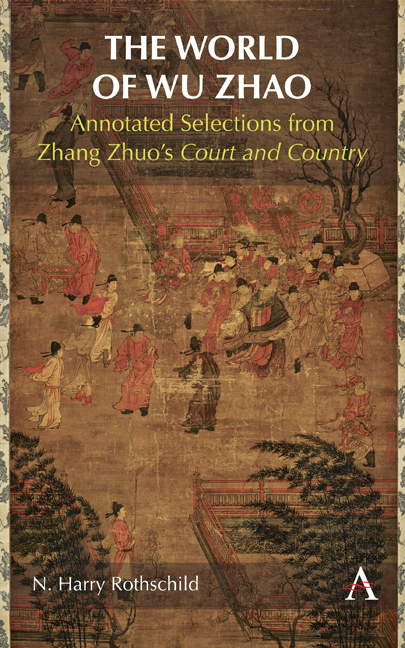Book contents
- Frontmatter
- Dedication
- Contents
- Acknowledgments
- Figures
- Map
- Tables
- Weights and Measures
- Introduction
- Chapter 1 Wu Zhao: her inner palace, her inner circle
- Chapter 2 The culture of the court
- Chapter 3 “Cruel officials”: Wu Zhao’s “teeth and horns”
- Chapter 4 Beyond court and capital: local officials
- Chapter 5 The common people
- Chapter 6 Relationships: men, women, and family in the time of Wu Zhao
- Chapter 7 Generals and military men
- Chapter 8 The frontier and beyond: foreigners and others during Wu Zhao’s reign
- Chapter 9 Religion and the supernatural world
- Chapter 10 Flora, fauna, and the natural world
- Afternote
- Appendix: People and Places
- Notes
- Bibliography
- Index
Chapter 7 - Generals and military men
Published online by Cambridge University Press: 15 November 2023
- Frontmatter
- Dedication
- Contents
- Acknowledgments
- Figures
- Map
- Tables
- Weights and Measures
- Introduction
- Chapter 1 Wu Zhao: her inner palace, her inner circle
- Chapter 2 The culture of the court
- Chapter 3 “Cruel officials”: Wu Zhao’s “teeth and horns”
- Chapter 4 Beyond court and capital: local officials
- Chapter 5 The common people
- Chapter 6 Relationships: men, women, and family in the time of Wu Zhao
- Chapter 7 Generals and military men
- Chapter 8 The frontier and beyond: foreigners and others during Wu Zhao’s reign
- Chapter 9 Religion and the supernatural world
- Chapter 10 Flora, fauna, and the natural world
- Afternote
- Appendix: People and Places
- Notes
- Bibliography
- Index
Summary
ONE OF THE FUNDAMENTAL BINARIES IN traditional China, sometimes complementary and sometimes oppositional, is that between the softer, cerebral wen—the civil literati pursuits of calligraphy, poetry, and classical learning that dominated court culture—and the more obdurate and rugged wu, the martial arts. It was long recognized that for a state to flourish and succeed, both its civil and martial aspects had to be fostered and cultivated; the notion that “both civil and military must be utilized in tandem” (wenwu bing yong 文武並用) became an axiom of statecraft that frequently appeared in the histories. Whereas in the Song and some later periods “the civil was venerated and the martial despised” (zhongwen qingwu 重文輕武), in the early Tang, with its Central Asian and steppe influence, there was more of a balance. Taizong, Wu Zhao’s first husband, is generally depicted as a virile warrior– sovereign, hirsute and rugged, a master of archery and horsemanship (see Figure 6). Many early Tang officers served in both civil and military capacities. This chapter examines Zhang Zhuo’s depictions of military men in Court and Country, revealing the extent to which he championed the civil (wen 文) camp.
In late seventh-century East and Central Asia, a number of regional powers surrounded Tang/Zhou China: the greatest threats were the Turks to the north and northwest, the Khitan to the northeast, and the Tibetans to the southwest. To counter these threats, there were more than six hundred garrisons spread around the empire, many of them around the capitals and along the northern border. As an official in Wu Zhao’s court, Zhang Zhuo generally advocated following a policy of appeasement—cleaving to the Confucian stance that it is costly, bad policy, both politically and economically ill-advised, to vie with barbarians over desert hinterlands and uncultivable steppe. This policy dictated that it was prudent to nurture and protect the fertile, agrarian core and concede the rocky, inhospitable periphery. However, other generals and hawkish ministers advocated more aggressive military policy. During the Tang, this was a common debate in discussions of foreign policy: appeasement or confrontation? Diplomacy or military action?
- Type
- Chapter
- Information
- The World of Wu ZhaoAnnotated Selections from Zhang Zhuo's <i>Court and Country</i>, pp. 135 - 150Publisher: Anthem PressPrint publication year: 2023

